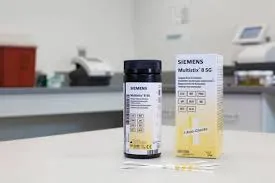Aug . 06, 2024 12:33 Back to list
Understanding the Importance of COVID-19 Antibody Testing for Immunity Assessment and Public Health
Understanding COVID-19 Antibodies Tests What You Need to Know
The COVID-19 pandemic has undeniably transformed the global health landscape. As efforts to combat the virus continue, one crucial aspect that has garnered significant attention is the development and utilization of COVID-19 antibody tests. These tests are designed to detect antibodies in the blood that indicate whether an individual has been exposed to the virus, even if they did not exhibit symptoms. Understanding how these tests work, their benefits, and their limitations is essential for navigating the post-pandemic world.
What are COVID-19 Antibodies?
Antibodies are proteins produced by the immune system in response to infections. When a person is infected with the SARS-CoV-2 virus, the body’s immune system activates and begins producing specific antibodies to fight the virus. There are two primary types of antibodies related to COVID-19 IgM and IgG. IgM antibodies typically appear first during an active infection, while IgG antibodies develop later and can remain in the body for months or even years, providing some level of immunity.
How Do Antibody Tests Work?
COVID-19 antibody tests typically involve taking a blood sample from an individual, either through a fingerstick or a venous blood draw. The sample is then tested for the presence of antibodies against the SARS-CoV-2 virus. There are different types of antibody tests, including enzyme-linked immunosorbent assays (ELISA) and lateral flow tests, each with varying levels of accuracy and reliability.
One of the key considerations with these tests is the timing of the test in relation to the infection. Antibodies usually take days to weeks to develop, so testing too early may yield false-negative results. Health authorities recommend that antibody testing be conducted at least two weeks after suspected exposure to the virus for more accurate results.
Benefits of COVID-19 Antibody Testing
covid-19 antibodies test

Antibody testing offers several potential benefits. Firstly, it can help individuals determine if they have previously been infected with the virus, providing valuable information about their immune status. This is particularly important for individuals who may have experienced COVID-19 symptoms but did not get tested during their illness.
Secondly, these tests can play a role in public health strategies. By identifying individuals who have developed antibodies, health officials can gain insight into the prevalence of COVID-19 within communities, aiding in the development of vaccination strategies and herd immunity assessments.
Moreover, some studies suggest that individuals with antibodies may have some level of protection against reinfection, although the extent and duration of this protection remain subjects of ongoing research.
Limitations and Considerations
Despite their potential benefits, COVID-19 antibody tests come with important limitations. One major concern is the accuracy of these tests. False positives and false negatives can occur, leading to potentially misleading conclusions about an individual’s immune status. It is crucial for individuals to consult healthcare professionals and consider additional testing when necessary.
Furthermore, the presence of antibodies is not a guarantee of immunity, and medical experts continue to study the complexities of the immune response to COVID-19. Vaccination is still recommended even for those who have had a prior infection, as it can bolster and prolong immunity.
Conclusion
In summary, COVID-19 antibody tests offer a valuable tool in understanding the pandemic's impact and assessing individual immune responses. While they provide important insights, it is essential to recognize their limitations and use them as part of a broader strategy in managing COVID-19. As the situation evolves, continued research and public health initiatives will be vital in ensuring that we navigate the complexities of this unprecedented global challenge effectively.
-
Pregnancy Test Calculator: Know Your Weeks, Week by Week
NewsAug.22,2025
-
Malaria Pf Ag Rapid Test Kit - Quick & Accurate Detection
NewsAug.11,2025
-
Accurate Cardiac Marker CK-MB Rapid Test for Quick Results
NewsAug.10,2025
-
Premium Empty ABS Plastic Cassette for Test Strips
NewsAug.09,2025
-
Sterile Urine Cup: Accurate Specimen Collection for Labs & Home
NewsAug.08,2025
-
Malaria Pf/Pan Ag Rapid Test Kit for Fast, Accurate Diagnosis
NewsAug.07,2025

